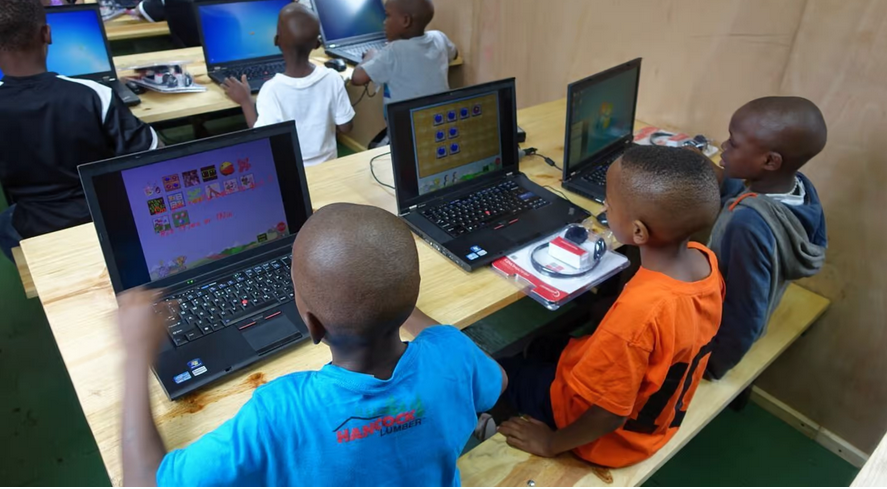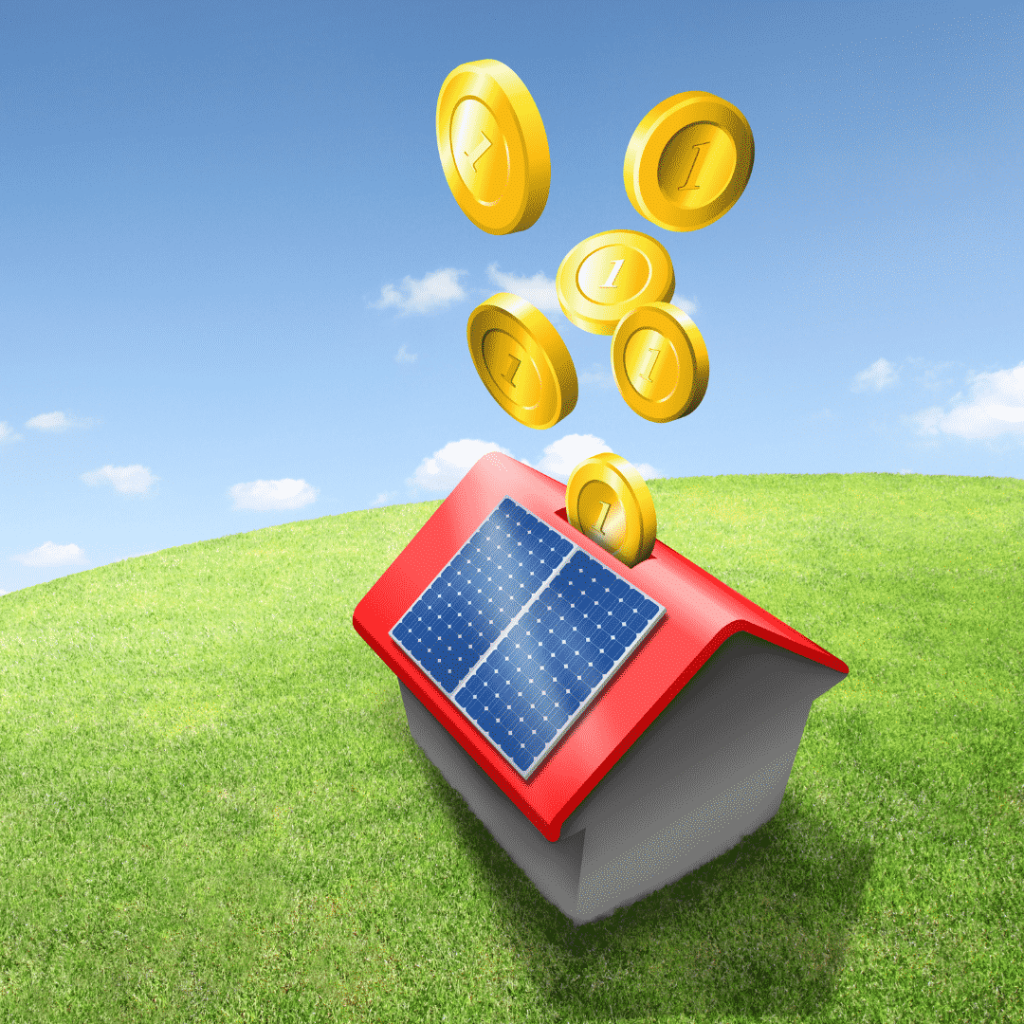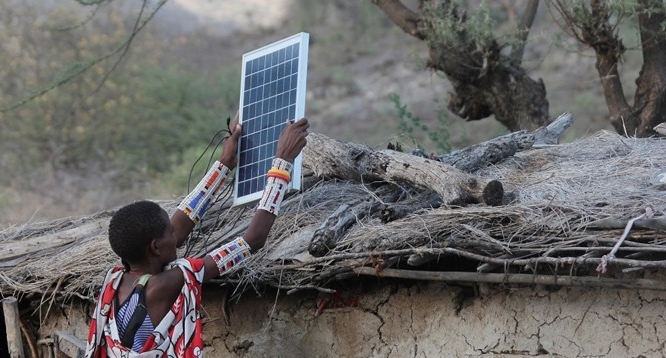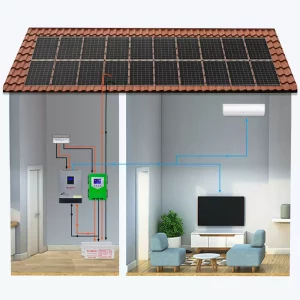Solar home systems are a reliable and affordable source of energy for off-grid communities, providing numerous benefits to rural areas. In this blog, we will explore the many benefits of solar home systems and how they can improve the lives of people in rural communities. From access to electricity and improved health and safety, to environmental sustainability and economic development, solar home systems offer numerous benefits that can have a positive impact on the lives of people in rural areas. By investing in solar home systems, we can help to improve the lives of people in rural communities and provide them with the opportunities they need to thrive. These are the many benefits of solar home system for rural communities
Access to electricity: Solar home systems provide a reliable and affordable source of electricity to off-grid communities, improving their quality of life and economic opportunities.
Access to electricity is a fundamental need that is often taken for granted in developed countries. However, in many rural communities around the world, access to electricity is still a major challenge. Solar home systems provide a reliable and affordable source of electricity to off-grid communities, improving their quality of life and economic opportunities.
Having access to electricity allows rural communities to power lights, appliances, and communication devices, improving their daily lives and providing opportunities for economic development. Without electricity, communities are limited in their ability to access education, healthcare, and other essential services.
Solar home systems provide a sustainable and cost-effective solution to this problem, providing reliable electricity to off-grid communities without the need for expensive and polluting fossil fuels. By investing in solar home systems, we can help to improve the lives of people in rural communities and provide them with the opportunities they need to thrive.
Health and safety: Solar energy is a clean and safe source of power, eliminating the risks associated with traditional fuels such as kerosene and diesel.
One of the key benefits of solar energy is its clean and safe nature. Traditional fuels such as kerosene and diesel are often used in rural communities for lighting and powering small appliances. However, these fuels can be dangerous and have negative impacts on health and safety. Kerosene, for example, is a highly flammable fuel that can cause fires and explosions if handled improperly. It also produces harmful fumes that can cause respiratory problems and other health issues. Diesel is also a dirty and polluting fuel that can cause air pollution and contribute to climate change.
Solar energy, on the other hand, is a clean and safe source of power that eliminates these risks. Solar home systems use solar panels to convert sunlight into electricity, providing a reliable source of power without the need for dangerous and polluting fuels. This not only improves health and safety for rural communities, but also helps to protect the environment. By investing in solar home systems, we can help to improve the health and safety of people in rural communities, while also reducing our impact on the environment.
Environmental sustainability: Solar energy reduces carbon emissions and helps to protect the environment.
Solar energy is a clean and sustainable source of power that has numerous environmental benefits. Solar home systems use solar panels to convert sunlight into electricity, providing a reliable source of power without the need for fossil fuels. This reduces carbon emissions and helps to protect the environment.
Fossil fuels such as coal, oil, and gas are major sources of greenhouse gases that contribute to climate change. Burning these fuels releases carbon dioxide and other pollutants into the atmosphere, causing air pollution and damaging the environment. Solar energy, on the other hand, is a clean and renewable source of power that does not produce any greenhouse gases or pollutants.
Investing in solar home systems not only helps to reduce carbon emissions and protect the environment, but it also helps to reduce our reliance on fossil fuels, which are a finite resource that will eventually run out. Solar energy is a sustainable and abundant source of power that has the potential to meet the energy needs of people all around the world. By investing in solar home systems, we can help to protect the environment and reduce our impact on the planet, while also improving the lives of people in rural communities.
Economic development: Solar home systems can stimulate local economic development by creating jobs in the installation and maintenance of the systems.
Solar home systems have the potential to stimulate local economic development in a number of ways. One way is by creating jobs in the installation and maintenance of the systems. Installing solar home systems requires a range of skills and expertise, including electrical, mechanical, and construction. These skills can be learned through training and education, providing employment opportunities for people in rural communities.
In addition to installing the systems, there is also a need for ongoing maintenance and repair services to ensure that the systems are operating at their best. This creates further employment opportunities for people in the community. By investing in solar home systems, we can help to create jobs and stimulate economic development in rural communities, providing people with the opportunity to earn a living and improve their quality of life.
In addition to creating jobs, solar home systems can also stimulate economic development in other ways. For example, they can provide a reliable source of power for small businesses, allowing them to operate and grow. Solar home systems can also reduce energy costs for households, freeing up income for other expenses and investments.
Overall, solar home systems have the potential to stimulate economic development in rural communities and provide people with the opportunities they need to thrive.
Improved education: Solar energy can improve access to education, particularly in remote areas, by providing lighting for study and charging devices.
Access to education is a fundamental right that is essential for personal and societal development. However, in many rural communities around the world, access to education is limited by a lack of resources, including electricity. Solar energy can improve access to education, particularly in remote areas, by providing lighting for study and charging devices.

Without electricity, students in rural communities often struggle to study at night and have limited access to learning materials and resources. Solar home systems provide a reliable source of electricity, allowing students to study at night and use devices such as laptops and tablets for learning.
Solar home systems can also help to improve the quality of education by providing a reliable source of power for schools. This can enable schools to operate more effectively, providing students with a better learning environment. By investing in solar home systems, we can help to improve access to education in rural communities, providing students with the opportunities they need to succeed.
Improved healthcare: Solar energy can improve healthcare services, particularly in remote areas, by providing reliable power for medical equipment and lighting.
Access to healthcare is a fundamental need that is essential for maintaining good health and wellbeing. However, in many rural communities around the world, access to healthcare is limited by a lack of resources, including electricity. Solar energy can improve healthcare services, particularly in remote areas, by providing reliable power for medical equipment and lighting.
Without electricity, healthcare facilities in rural communities often struggle to operate effectively, limiting the services they can provide. Solar home systems provide a reliable source of electricity, enabling healthcare facilities to operate more effectively and provide better care to patients. Solar home systems can also improve the quality of healthcare by providing a reliable source of power for medical equipment. This can enable healthcare facilities to use advanced technologies and provide more specialized care to patients.
By investing in solar home systems, we can help to improve healthcare services in rural communities, providing people with the care they need to maintain good health and wellbeing.
Improved communication: Solar energy can improve communication in remote areas by providing power for communication devices.
Communication is an essential part of modern society, enabling people to connect with each other and access information and resources. However, in many rural communities around the world, communication is limited by a lack of resources, including electricity. Solar energy can improve communication in remote areas by providing power for communication devices. Without electricity, people in rural communities often struggle to use communication devices such as phones and radios, limiting their ability to connect with others and access information. Solar home systems provide a reliable source of electricity, enabling people to use communication devices and stay connected.
Solar home systems can also improve communication by providing a reliable source of power for communication infrastructure such as cell towers and internet hubs. This can enable people in rural communities to access a wider range of communication services and resources.
By investing in solar home systems, we can help to improve communication in rural communities, providing people with the tools they need to stay connected and access information.
Increased income: Solar home systems can increase household income by reducing energy costs and providing opportunities for small businesses to operate.
Solar home systems have the potential to increase household income in a number of ways. One way is by reducing energy costs. Solar home systems provide a reliable and affordable source of electricity, eliminating the need for expensive and polluting fossil fuels such as kerosene and diesel. This can significantly reduce energy costs for households, freeing up income for other expenses and investments.

Solar home systems can also increase household income by providing opportunities for small businesses to operate. For example, a small business that requires electricity to operate, such as a bakery or tailoring shop, can use a solar home system to power their business, increasing their income and contributing to the local economy.
Overall, solar home systems can increase household income by reducing energy costs and providing opportunities for small businesses to operate, improving the lives of people in rural communities and stimulating economic development.
In conclusion, solar home systems offer numerous benefits to rural communities, including access to electricity, improved health and safety, environmental sustainability, economic development, improved education, improved healthcare, improved communication, and increased income. By investing in solar home systems, we can help to improve the lives of people in rural communities and provide them with the opportunities they need to thrive. Solar home systems provide a reliable and affordable source of electricity to off-grid communities, improving their quality of life and economic opportunities. They are also a clean and safe source of power, eliminating the risks associated with traditional fuels such as kerosene and diesel. Solar energy is a sustainable and abundant source of power that has the potential to meet the energy needs of people all around the world.
Investing in solar home systems not only helps to improve the lives of people in rural communities, but it also has numerous environmental benefits. Solar energy reduces carbon emissions and helps to protect the environment, reducing our impact on the planet. Solar home systems can also stimulate local economic development by creating jobs in the installation and maintenance of the systems, as well as providing opportunities for small businesses to operate.
Overall, solar home systems offer numerous benefits to rural communities and are a viable and sustainable solution to the challenges they face. By investing in solar home systems, we can make a positive impact on the lives of people in rural communities and help to create a more sustainable future for all.



